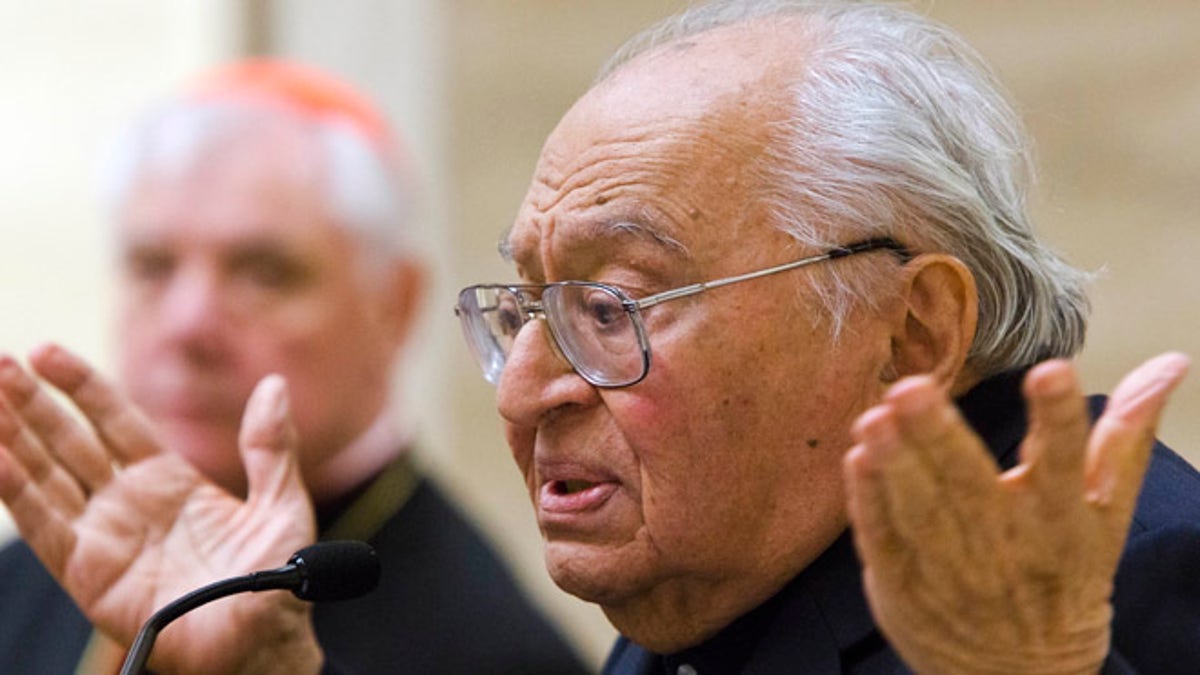
Feb. 25, 2014: Peruvian theologian Gustavo Gutierrez speaks during the presentation of the book, to which he contributed, "Poor for the poors, the mission of the Church" by Cardinal Gerhard Ludwig Mueller, background, in Vatican City.
VATICAN CITY – The founder of liberation theology, the Latin American-inspired Catholic theology advocating for the poor, received a hero's welcome Tuesday at the Vatican as the once-criticized movement continues its rehabilitation under Pope Francis.
The Rev. Gustavo Gutierrez of Peru was the surprise speaker Tuesday at a book launch featuring the head of the Vatican's orthodoxy office, Cardinal Gerhard Mueller; one of Francis' top advisers, Cardinal Oscar Rodriguez Maradiaga; and the Vatican spokesman.
The former Cardinal Joseph Ratzinger spent much of his tenure at Mueller's Congregation for the Doctrine of the Faith battling liberation theology and disciplining some of its most famous defenders, arguing that they had misinterpreted Jesus' preference for the poor into a Marxist call for armed rebellion.
That interpretation was powerfully attractive to many Latin Americans in the 1960s and 1970s who were raised Catholic, taught by Marxist-influenced teachers and outraged by the inequality and bloody repression around them.
Gutierrez and his backers insist true liberation theology was always perfectly in line with the church's social teaching about the poor, which Francis embraces.
Francis wrote the preface of Mueller's book, "Poor for the Poor: The Mission of the Church," which contains two chapters written by Gutierrez.
Gutierrez, 85, received a round of applause when the Vatican spokesman noted his presence Tuesday and another round when he approached the podium to speak about the parable of the Good Samaritan.
The former Cardinal Jorge Mario Bergoglio has had a complicated relationship with liberation theology, clashing with left-leaning members of his Jesuit order who took up its politicized call to confront Argentina's violent military dictatorship in the 1970s.
Nevertheless, Francis fully embraces its call for the church to have a "preferential option for the poor."
The Vatican newspaper, L'Osservatore Romano, has been on a rehabilitation campaign of sorts, saying that with the first Latin American pope, liberation theology can no longer "remain in the shadows to which it has been relegated for some years, at least in Europe."
